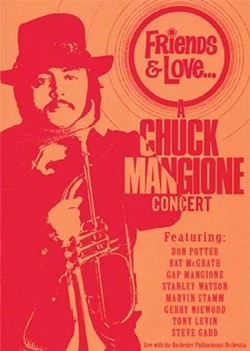It's a reasonable question to ask: What the hell were Bat McGrath and Tricia Cast doing in Nashville?
True, the city is exploding, and fantabulous architecture can be found on many downtown street corners. When the hotel doorman asks, "Looking for the honky-tonks?" he needs to point only a couple of blocks up the street, to Broadway. Nashville's idea of Broadway. There, beneath a sky that would certainly be filled with stars if it weren't for the obscuring glow of neon signs, different kinds of stars fight for Music City cred of questionable country authenticity. Why, there's Luke Bryan's sushi restaurant! And bars endorsed by Dierks Bentley and Florida Georgia Line! And Jimmy Buffett's Margaritaville, of course! They're all pretty much the same. Doors and windows open to the sidewalks and the tourists wandering like herds of cattle, pausing to take in a blast of air conditioning and cover bands — with lead singers in overalls, caterwauling away at a John Anderson song, or bringing Billy Joel to his knees. And inside, waiting on tables and pouring drinks, are the singers and songwriters of a distant future, getting in on the ground floor of the food-service industry.

- PHOTO BY AARON WINTERS
This wasn't Bat McGrath.
This weekend, he's coming home. Tricia is bringing the memories.
Bat died on October 1. A member of the Rochester Music Hall of Fame, he was diagnosed with cancer on December 12, 2018. A suspicious colonoscopy result led to the discovery that the cancer had spread throughout his liver. With treatment, it was estimated McGrath might have another 1½ years to live. But these procedures would seriously compromise his quality of life, and McGrath and Cast, his wife, made the difficult decision to decline treatments. A decision, they were told, that would leave McGrath with mere months to live.
Tricia will be in the audience Saturday night at Lovin' Cup Bistro & Brews for a celebration of his life. Rochester musicians will be playing his songs, and memories will be shared. How much Tricia will take part in all this remains to be seen, although she thinks she'll be happy to just sit quietly, and listen.
"I could not begin to find the words," she says, before quietly giving way to tears.
"I'm on a healing path, but it's hard."
She's talking by phone from their home just outside of Nashville, a rustic house tucked away among the trees on a mountainside. There are three or four or perhaps five different Nashvilles. This one is far, far from the glare of the tourist honky-tonks. A peaceful landscape where Bat wrote his songs.

- PHOTO BY AARON WINTERS
He recorded those songs, and others did as well. Kenny Rogers, Chely Wright and Earl Thomas Conley, among others. Don Potter — Bat's old musical partner going back to the 1960s, when they were the center of the Rochester music scene – was working as the musical director for the country duo The Judds when he suggested Wynonna Judd take a look at one of Bat's songs.
"I said, 'You need to hear this tune,'" Potter says. "I was trying not to say, 'This is my dear friend...' I'm not trying to use my connections with them to promote my friend, but I just said, 'Let the song sell itself. If you don't like it, it won't work.'"
Judd sat in a car and listened to the cassette tape. "Wynonna just sat and wept when she heard, 'Come Some Rainy Day,'" Potter says. "It was a hit for her. And a hit for Bat, which really got him rolling in Nashville, at the time."
It's kind of quiet on the mountain now. Over the last few years, all three of the dogs have died as well. King, the Belgian Malinois police dog, was the first to go, although he had been tough enough to survive getting bit on the throat by a copperhead snake. Tricia spends her time making copies of Bat's self-released CDs and slipping them into cardboard sleeves for sale; the two music industry rebels used to do that together, sitting at the kitchen table with a bottle of red wine between them.
Tricia's been downsizing her life, "Buying things in little packages." She works on quilts for friends, dwelling on what her future holds. "I don't know, and I'm not pressing myself to find out," she says. "But I don't know what I'm supposed to be doing."
For years, she acted. She was a child star, playing the girl pitcher in the television comedy "The Bad News Bears," a spinoff from the film of the same name. That was in 1979, and lasted for 26 episodes. She made appearances on many TV shows over the years, shows that you may even recognize: "Little House on the Prairie," "Simon & Simon," "Married... With Children," "ER," "Chicago Hope," and 56 episodes of the nighttime drama "Santa Barbara." But it is her role as Nina Webster, on the daytime soap "The Young and the Restless," for which Tricia is best known. She started that in 1986, and didn't expect it to last long.
Fourteen years, that's not too long, is it? That run ended in 2001, shortly after she and Bat married, and she asked to be let out of her contract with "The Young and the Restless" to spend more time with him. She returned to the show for a few years, and made a few guest appearances, the last in 2014.
But the celebrity of Los Angeles lost to the home in the Nashville woods, where they could take a dip in the saltwater pool and plant tomatoes. And where Bat could teach songwriting and kung fu —two different skill sets, although perhaps paired in a useful way whenever approaching Music Row.
"This is us," Tricia says. "Totally. We felt at home here." She sometimes inspired his music. Bat wrote a song about her called "Perfectly Flawed."
"I think he fit in with the vibe of our country-living situation, for sure, and he liked the people," Tricia says. "It didn't matter to him that the business end of Nashville wasn't where he was at. He really enjoyed being here, in our neck of the woods, and in the community. That was different than the business end of it."
"Writing was one thing," she says. "Record companies were something different."
Snakes, even if they're not copperheads, can be a problem in the Nashville area.

- PHOTO BY AARON WINTERS
Bat and Potter had known each other since they were teenagers growing up in Glens Falls. Then there was the move to Rochester, where their energetic rock band The Showstoppers was signed by Columbia music legend John Hammond. They moved on to playing as a duo, living the hippie life on a farm off of Italy Valley Road, outside of Naples. They opened Hylie Morris' Alley on West Ridge Road, with jams that went until 2 or 3 a.m. with Chuck and Gap Mangione, Steve Gadd, and Tony Levin, as they were launching their own significant careers. They all played on what proved to be Chuck Mangione's breakout album, 1970's "Friends and Love." Bat wrote some of the lyrics, including those on the haunting "She's Gone."
But then, the snakes. "The little voices that are so happy to see dissention," Potter says.
It's a story as old as...well, as old as record executives have walked the planet. Divide and conquer. And it came at Bat and Potter from different angles. They had already been signed to RCA Victor, and then to Epic Records, and released an album in 1969, "Introducing Bat McGrath & Don Potter." Then Columbia Records' Clive Davis heard Potter sing on "Friends and Love."
"He went to our manager at that time," Potter says, "and said, 'Hey listen, we're not gonna spend money on Bat and Don, but we are gonna spend money on this guy, Don Potter, and put a tuxedo on him, cut his hair and clean him up, and put him on the road with Chuck Mangione.'" Davis had some kind of vision of Frank Sinatra fronting Woody Herman or Tommy Dorsey big bands, "He was trying to recapture an old thing.
"And of course, Bat and I looked at each other and said, 'That ain't gonna happen.'
"But I think it was the point, or the beginning point of creating a dis..." Potter pauses to think of the right word, then comes up with his own. "A dis...ease between us. Which I didn't like, nor did Bat. One person will feed you a bit of information, another person will feed him a piece of information, and before you know it, everything was going against us both.
"We both woke up one day and said, 'You know, this is just not working. Now we are living in distrust, now we're living in where we cannot really trust each other.
"We needed some space. It got a little hot."
Although, Potter says, tamping down the flames, "I must say, it never got angry enough where we didn't want to know each other."
Potter moved to Nashville, worked as a studio musician, hooked up with The Judds, became a born-again Christian, and released his own music. Bat released a couple of nice solo records – including a song called "Wegmans," celebrating the local grocery store – then walked away from the music industry to work as a bodyguard and chauffer for the rock band Van Halen. He got in a brawl with a pot dealer while picking up a package for the band, and got slashed across the forehead with a knife in the process, before deciding music maybe wasn't easier, but it was demonstrably less dangerous.
Moving to Nashville with Tricia, whom he'd met in Los Angeles, he returned to songwriting. Drawing inspiration from working with the legendary country songwriter Harlan Howard, who advised Bat that, "If we don't get a song by noon, we'll go get a drink." Bat's comeback album was 1992's "Mr. Right," released on the House of Guitars' Mirror Records label.

Yet Bat remained absent from the Rochester scene for years afterward, until 2007 when Mangione and the Rochester Philharmonic Orchestra brought back Bat, Potter, and much of the old gang for two shows at Kodak Hall at Eastman Theatre, celebrating "Friends and Love." Bat and Potter were reunited again in 2011 for a set of three more sold-out "Friends and Love" shows at the Eastman.
Encouraged by the reception, Bat began making twice-yearly returns to Rochester and the surrounding countryside, playing gigs at house concerts, wineries, folk venues, the Naples Grape Festival, and even one night at the Rochester jazz festival, where he packed a closed-off Gibbs Street for a free show.
When Bat and Potter were inducted separately into the Rochester Music Hall of Fame in 2013, their onstage reunion as a duo, after so many years of going their own way, was the stunning musical highlight of the night.
Potter was in Rochester last December to perform at a Christmas concert with the Rochester Philharmonic Orchestra. After rehearsals, a day before the concert, Bat called him. He wanted Potter to know, before hearing it from someone else, that he was dying of cancer.
"I felt terrible, and fell apart several times," Potter says.
"Each of us has, I believe, a destiny of some sort, and a direction to go to get to that destiny," Potter says. "And when someone announces, 'I only have months to live,' the first question that rattles through your being is: Did I fulfill my destiny? And the second question is: Did I keep anyone else from fulfilling theirs?"
"You'll torment yourself to death, trust me. You just have to take yourself in hand and say, 'I can't go down that road. And he never once ever, ever, said anything like, 'I wish you'd have stayed with me, we'd have had a better time.' We never got to that."

- PHOTO BY AARON WINTERS
In January of this year, a frail-looking Bat was greeted with a standing ovation from a sell-out crowd of 800 people at The Lyric Theatre before he'd even played a note on his guitar. His stage banter that night was typically self-deprecating: "A great artist knows when it's time to leave the stage. Having said that, I'm not a great artist."
He used his final months well. Potter went to Nashville to fulfill one of Bat's "bucket list" wishes, recording a new version of The Everly Brothers' "Let It Be Me," the first song that McGrath and Potter ever sang together when they were 15 years old. The distrust fostered by the record industry, the dis-ease, had passed long ago. Now they could remind each other of the code Bat would use at Hylie Morris' Alley to announce a pot-smoking break in the parking lot — "I'm going to check the Coke machine" — and Bat's fear of flying. "We can sit and tell stupid stories for hours, which we drove Trish crazy the last time I saw him," Potter says. "We just told stories of two incredibly stupid people doing stupid things, but enjoying every minute of it."

And Bat's longtime friends, musicians, and producers weren't going to let him get away with just one song. They joined Bat to assemble a collection of a few recent live recordings, new versions of old songs, and vintage McGrath. His song of jealousy, "The Spy." His tribute to a favorite bar near Branchport, "Blue Eagle." And, of course, "Come Some Rainy Day." There were nineteen tracks in all, and a CD released in April, simply titled, "Bat McGrath."
And despite his fear — and his doctors' warnings — that he might not make it into the spring after having declined further medical treatment, Bat remained strong enough to return one last time in April to the venue he'd been playing here most often in recent years, Lovin' Cup Bistro & Brews. His body was dwindling, yet his voice remained strong.
Getting ready for these shows, arranging his gear, "was a challenge he enjoyed," Tricia says. Perhaps this trip to Rochester will provide that same joy for her. "It was vital for Bat to have that happiness as a singer-songwriter, that audience there kept him going," Tricia says. "I am super grateful, and that gratitude is real, undeniable, and it helps.
The age difference may have made this inevitable. Bat was 73 when he died, Tricia is 52. But once they had made the decision to forego medical treatments, Bat's acceptance of his fate was a calm that came with a long life lived well.
"He was absolutely incredible," Tricia says. "It is that grace and poise and sage wisdom that helps me through my battle today.
"I'm encouraged to take it..." And she pauses, searching for the right analogy.
Oh, what the hell, she seems to be thinking. "Take it like a man. Take it like my man."
Jeff Spevak is WXXI's Arts & Life editor and reporter. He can be reached at [email protected].

